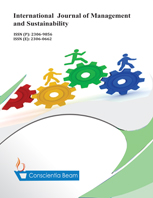Socio-Cultural Implications of Breast Feeding in Urban Area of Pakistan: (A Case Study of District Faisalabad)
DOI:
https://doi.org/10.18488/journal.11/2012.1.1/11.1.23.30Abstract
Breastfeeding is considered as the most economical and easily accessible complete nutrition for every new born child. Beneficial effects of breast feeding both for the mother and child are well-known. However, there is evidence that breast feeding is on the decline in many developing countries. The main objective of the present study was to explore the different socio-cultural issues which were associated with breast feeding practices. The universe of the present study was Faisalabad District, Pakistan. Multistage sampling technique was applied for the selection of the respondents. At first stage two towns were selected by using simple random sampling technique. At the second stage, four colonies were selected randomly. Convenient sampling was done to select the households. A sample of 120 married women was interviewed who have at least one breast feeding baby from each household. Data show that majority of the mother were in the opinion that breastfeeding is essential for their baby for their physical and mental growth. The researchers also found the main hurdles in the completion period of breastfeeding were poor socio-economic condition of mothers, lack of appropriate gap in birth space, lack of knowledge and awareness among mothers about the benefits of breastfeeding, poor health of mothers, maternal employment and cultural norms of the society. It is suggested that mothers should give proper knowledge and awareness about the benefits of breastfeeding for their child’s future survival.

